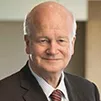"Sabacc" is a fictional card game in the Star Wars universe. In the most recent Star Wars film, a young Han Solo wins the Millennium Falcon during a game of Sabacc. Until last month, Lucasfilm was locked in a trade mark and copyright infringement battle with the developers of an app called "Sabacc – The High Stakes Card Game".
In a recent decision of the United States District Court, Lucasfilm won summary judgment on its copyright infringement claim against the app developers: Lucasfilm Ltd LLC v Ren Ventures Ltd and Creative Industries Ltd. Although the copyright infringement issues were straightforward, the decision provides a useful illustration of some fundamental principles relevant to Australian copyright law.
What does copyright protect?
Copyright protects the expression of ideas, not the ideas themselves. "Sabacc", including the concepts on which the fictional game's rules and method of play are based, is merely an idea, which is not protected by copyright. Accordingly, Lucasfilm did not have a cause of action for copyright infringement against the app developers based on the fact that they developed an app which reproduced the idea of "Sabacc".
In promoting their app, however, the developers had used images and dialogue from Episode V: The Empire Strikes Back, Episode VI: Return of the Jedi and a 2015 television episode, Star Wars Rebels. In contrast to mere ideas – films, images and dialogue are protected by copyright, because they embody the expression of ideas in material form. In addition to copyright subsisting in the films, copyright would also subsist, for example, in the screenplay for each film and television episode. Lucasfilm's copyright action was therefore limited to the app developers' use of the relevant images and dialogue only.
Key "fair use" and "fair dealing" principles
In the United States, a "fair use" defence exists to a claim of copyright infringement. There is currently no such defence under Australian law. Australian law provides a narrower defence of "fair dealing", which is only available to a defendant where the defendant has used the relevant copyright-protected material for specific purposes, being:
- Research or study;
- Criticism or review;
- Parody or satire; or
- Reporting news.
Australia's Copyright Act directs the Court to consider a number of factors in determining whether or not the use of a work is a fair dealing for the purpose of research or study. Although the Copyright Act does not provide the same direction in relation to the other fair dealing defences mentioned above, the same factors are likely to be relevant.
Market harm
One of these factors is the effect which the dealing has had upon the potential market for, or value of, the work. Market harm is also a factor considered by the Courts in the United States in the context of "fair use".
In the District Court's decision, Judge Seeborg said that "movie franchise owners routinely licence intellectual property rights to other businesses to develop movie-related merchandise and protects, which allows both sides of the transaction to reap the benefits associated with copyright works".
Accordingly, the Court accepted there was clearly a "market" for the use of the Star Wars images and dialogue that were used by the app developers in the course of promoting the app. It did not matter, as the app developers had argued, that people would not watch a Star Wars GIF, for example, instead of a full Star Wars film (or television episode). The app developers failed to lead any evidence showing lack of market harm to Lucasfilm. As a result, this particular factor weighed against the app developers' use constituting a "fair use".
Transformative use
Another relevant factor in both the United States and Australia is the extent to which the defendant has "transformed" the copyright-protected material. This is particularly relevant in Australia in the context of a purported fair dealing for the purpose of parody or satire.
In the United States, a "transformative use" includes one which "alters the original with new expression, meaning, or message" (Kelly v Arriba Soft Corporation 336 F.3d 811 at 819). In this case, the app developers had not transformed the material other than some minor cropping and inserting some headlines or captions. As a result, this factor also weighed against the app developers' use constituting a "fair use".
Public domain material and "innocent" infringement
The app developers argued that Lucasfilm was estopped from claiming copyright infringement partly because they said they did not know Lucasfilm owned the copyright subsisting in the relevant Star Wars films and television episode. They argued that many Star Wars GIFs are available online and shared via social media which do not contain any indication of copyright ownership and that Lucasfilm had not sued other users of such material. Judge Seeborg, however, held "that copyright protections may be ignored or go undetected is not a strong indication that no such protections exist".
Although the app developers' purported reliance of their erroneously-held views caused them to suffer harm, Judge Seeborg determined that "the reliance was unjustified and the harm self-inflicted".
The District Court's decision accordingly serves as a useful reminder about the use of publicly-available material. Works and subject matter available in the public domain are not necessarily free to use because they may be protected by copyright.
If this case had been heard in Australia under the Copyright Act, and the app developers were able to establish that they had been unaware of and had no reasonable grounds for suspecting that they had infringed Lucasfilm's copyright, then they would be able to rely on the defence of "innocent infringement" under the Copyright Act. If that defence was available, Lucasfilm would not have been entitled to receive an award of damages, but it would still be entitled to an account of profits (in addition to any other relief otherwise available).
The content of this article is intended to provide a general guide to the subject matter. Specialist advice should be sought about your specific circumstances.


